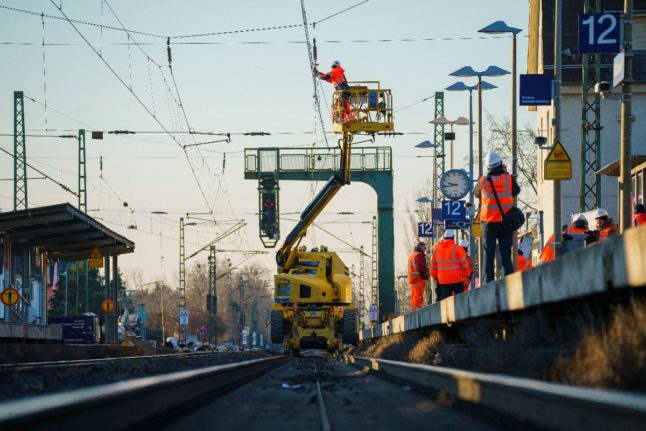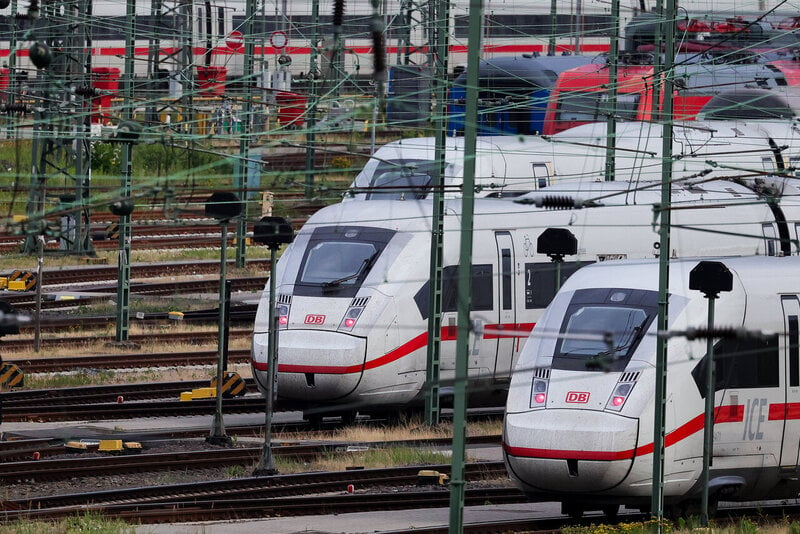Covid infections have been rising in the UK, Portugal – and even Israel and Australia – due to the spread of the more infectious Delta strain.
And now calls are growing on tighter rules and checks on people travelling into Germany.
It comes as the German government has been easing travel restrictions on several countries including the US, while keeping them tough for so-called ‘virus variant area of concern’ regions.
On Friday Germany relaxed its borders to vaccinated travellers from non-EU countries, but announced that two more countries – Portugal and Russia – were being added to the ‘virus variant area of concern list’. The UK, India and South Africa are already on the list, along with several other countries.
Travel is generally banned from virus-variant regions. German residents and citizens can return to the country but they must adhere to strict testing rules and quarantine for 14 days even if they are fully vaccinated.
But with other regions that were previously deemed non-risk seeing an increase of Covid cases due to Delta, will Germany put tighter controls on all travel back in place?
‘Don’t bring danger back to Germany’
With an eye on the rise of the share of the supercontagious variant in Covid cases in Germany – despite an overall low number – several state government politicians are pushing to tighten testing and quarantine rules when people enter the country from abroad.
Hamburg’s mayor, Peter Tschentscher (SPD), slammed the fact that a rapid antigen test taken before travel to Germany is currently enough to avoid quarantine when entering the country from basic ‘risk areas’.
“That is too unsafe,” he told Die Welt. Instead, he said, all unvaccinated travellers returning from risk areas and high-incidence areas should be ordered into quarantine, which could be lifted at the earliest after five days if they receive negative results from a PCR test.
Berlin’s head of government, Michael Müller, expressed a similar view.
“It’s nice that people can go on vacation. But we don’t want to bring the dangers back here to Germany,” the SPD politician told broadcaster ZDF.
He added that spot checks on examining people’s evidence of negative tests, or proof of vaccination at the border were “not enough”.
Previously, Bavaria’s health minister Klaus Holetschek (CSU) demanded that holidaymakers returning to Germany be more closely checked at the borders for vaccination cards and negative Covid tests.
Lower Saxony’s state premier Stephan Weil backed the demand: “I expressly support the call for border controls to check whether (people’s) negative tests are available. This is precisely what has been lacking so far,” the SPD politician told Die Welt.
Weil also called for mandatory double testing for all returnees who are not fully vaccinated.
“Even in countries with comparatively low incidences, you run the risk of meeting other holidaymakers who are carrying the much more contagious Delta variant,” he said.
Mecklenburg-Western Pomerania’s state premier Manuela Schwesig (SPD) previously warned: “International travel must not lead to more people becoming infected again and carrying the virus home.”
Meanwhile, Chancellor Angela Merkel has been pushing for all EU countries to order a quarantine for arrivals from the UK over fears of the Delta variant spreading.
On Monday Germany reported 219 Covid cases within 24 hours, and eight deaths. The number of cases per 100,000 people in seven days stood at just 5.6.
READ ALSO: How can tourists and visitors in Germany get a Covid-19 test?
What are Germany’s travel rules?
Germany has a three-tiered warning system in place for countries and regions across the world, ranging from a basic ‘risk’ zone, to a ‘high incidence’ area and the highest risk category is ‘virus variant area of concern’.
Different rules are required for arrivals from countries around the world depending on their risk status, although quarantine restrictions were eased recently – particularly for fully vaccinated people.
The Robert Koch Institute’s risk list is updated regularly.
Germany is set to lift its pandemic travel warning for most countries from July 1st.
However, anyone coming into Germany by air is still subject to a general testing obligation: everyone – whether coming from a risk area or not – must present a negative Covid test result, a vaccination certificate or proof of recovery from Covid before departure.
Politicians, including Chancellor Angela Merkel, have spoken out about the race to vaccinate people before the Delta variant spreads widely in Germany.
READ ALSO: Where (and how) are Germany’s Delta variant Covid cases spreading?




 Please whitelist us to continue reading.
Please whitelist us to continue reading.
Member comments